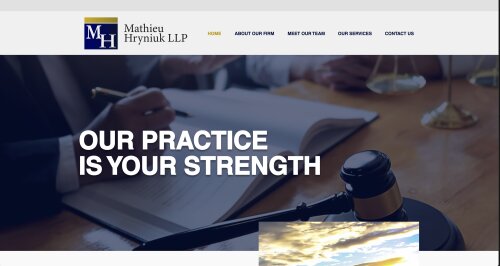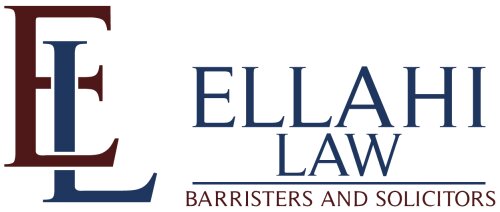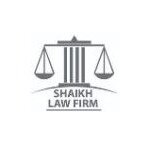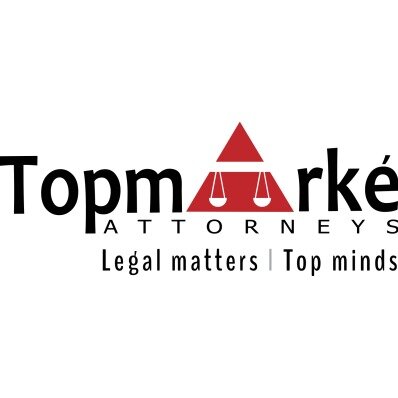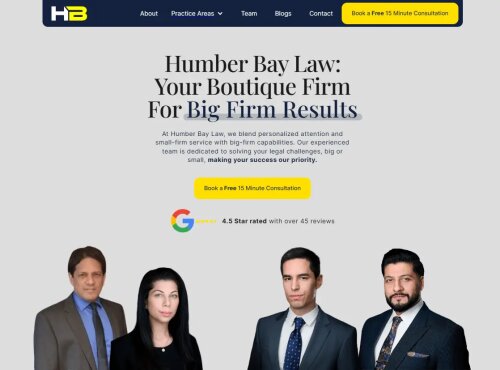Best Funds & Asset Management Lawyers in Toronto
Share your needs with us, get contacted by law firms.
Free. Takes 2 min.
List of the best lawyers in Toronto, Canada
About Funds & Asset Management Law in Toronto, Canada
Funds and asset management law in Toronto encompasses regulations, statutes, and practices governing the pooling and investing of assets on behalf of individuals, institutions, and organizations. Toronto, as Canada's financial centre, is home to a wide range of investment managers, mutual funds, hedge funds, pension funds, and private equity firms. The legal framework ensures that these financial products and services are managed responsibly and in compliance with consumer protection, privacy, securities, and anti-money laundering laws. Laws in this area aim to promote investor confidence, market integrity, and the stability of Canada’s financial system.
Why You May Need a Lawyer
Individuals, businesses, and institutional investors might seek legal assistance in funds and asset management for several reasons. You may need a lawyer if you are:
- Establishing a new investment fund or asset management business
- Structuring or reorganizing investment funds for tax or regulatory reasons
- Drafting or reviewing fund offering documents, investment management agreements, and compliance policies
- Ensuring compliance with the complex securities and regulatory landscape
- Faced with regulatory investigations or enforcement action
- Considering mergers, acquisitions, or sale of fund management businesses
- Dissolving, winding up, or exiting a fund
- Dealing with disputes involving investors, fund managers, or custodians
- Seeking guidance on cross-border investments or international fund structures
Professional legal help can help protect your interests, avoid compliance pitfalls, and manage risk in an increasingly complex environment.
Local Laws Overview
In Toronto, funds and asset management activities are primarily governed by federal and provincial laws, regulations, and regulatory bodies.
- Securities Law: The Ontario Securities Act is the main piece of legislation, with oversight by the Ontario Securities Commission (OSC). Fund managers, portfolio managers, and investment fund dealers must register and follow disclosure, reporting, and compliance requirements.
- National Instruments: These are rules adopted by the Canadian Securities Administrators (CSA) that apply across jurisdictions. Instruments like NI 81-102 (for mutual funds), NI 31-103 (registration requirements), and NI 45-106 (exemptions) are particularly relevant.
- Anti-Money Laundering: Asset managers must comply with federal laws under the Proceeds of Crime (Money Laundering) and Terrorist Financing Act, enforced by the Financial Transactions and Reports Analysis Centre of Canada (FINTRAC).
- Taxation: Fund structures and distributions are impacted by the Income Tax Act and Canada Revenue Agency (CRA) rules, with considerations for both domestic and cross-border investments.
- Privacy: The Personal Information Protection and Electronic Documents Act (PIPEDA) and other privacy laws impact the collection and use of investor data.
- Other Regulations: Considerations may also include international laws, derivatives regulations, and guidance from self-regulatory organizations like the Mutual Fund Dealers Association of Canada (MFDA).
Regulatory compliance is an ongoing responsibility for both fund sponsors and asset managers, making legal guidance essential.
Frequently Asked Questions
What is the difference between an asset manager and a fund manager?
An asset manager oversees investment portfolios for individual or institutional clients, while a fund manager typically manages a specific investment fund, such as a mutual fund or hedge fund, investing pooled assets on behalf of many investors.
Do I need to register to manage a fund in Toronto?
Generally, to manage investment funds or provide discretionary portfolio management in Ontario, you need to register with the Ontario Securities Commission unless you qualify for an exemption.
What kind of funds are commonly available in Toronto?
Common funds include mutual funds, exchange-traded funds (ETFs), hedge funds, private equity funds, venture capital funds, and pension funds.
How are funds structured in Canada?
Funds are commonly structured as trusts or corporations. The choice impacts taxation, governance, regulatory compliance, and investor rights.
Are there regulations about marketing investment funds?
Yes, all advertising and marketing must comply with securities regulations, including rules about truthful disclosure, prospectus requirements, and cold calling. Misleading statements are strictly prohibited.
What are the main investor protection measures?
Investor protections include mandatory disclosures, registration and compliance obligations for managers, complaint procedures, and oversight by regulators such as the OSC.
Can foreign investors participate in Canadian funds?
Yes, but there are rules about solicitation, distribution, tax withholding, and reporting. Regulatory and tax advice is recommended for cross-border structures or international investors.
What are the tax implications of investing in Canadian funds?
Tax implications depend on the structure and type of fund, residency of investor, and income type. Taxes can impact distributions, capital gains, and withholding for non-residents.
What if I have a dispute with a fund manager?
Many disputes can be addressed through internal complaint mechanisms or external dispute resolution bodies. Legal advice may be needed for contractual, regulatory, or litigation matters.
How do I ensure my fund complies with anti-money laundering requirements?
Fund managers must establish robust compliance programs, conduct client identification, keep required records, and report suspicious activities to FINTRAC. Legal counsel can help design and review these protocols.
Additional Resources
- Ontario Securities Commission (OSC): The principal regulator of securities in Ontario, offering guides, policies, and investor resources.
- Canadian Securities Administrators (CSA): A body coordinating harmonized regulation nationwide.
- Financial Transactions and Reports Analysis Centre of Canada (FINTRAC): The federal anti-money laundering regulator.
- Mutual Fund Dealers Association of Canada (MFDA): Self-regulatory organization for mutual fund dealers.
- Canada Revenue Agency (CRA): Information about tax compliance for investors and funds.
- Investment Industry Regulatory Organization of Canada (IIROC): Regulator for investment dealers and trading activity.
- Legal aid clinics and law societies: The Law Society of Ontario offers a directory of qualified fund and asset management lawyers in Toronto.
Next Steps
If you are considering starting or investing in a fund, or if you manage assets and need legal guidance in Toronto, it is important to consult a knowledgeable lawyer with experience in funds and asset management. Here are suggested steps:
- Identify your specific legal issue or objective, such as compliance, structuring, or dispute resolution.
- Gather all relevant documents and background information.
- Research local law firms or individual lawyers who specialize in funds and asset management.
- Contact the Law Society of Ontario for referrals if you are unsure where to start.
- Schedule an initial consultation to assess their expertise and discuss your concerns confidentially.
- Work closely with your legal counsel to ensure all regulatory filings, contracts, disclosures, and compliance matters are handled properly.
A proactive approach can help protect your investments and business interests while navigating the complex landscape of fund and asset management law in Toronto, Canada.
Lawzana helps you find the best lawyers and law firms in Toronto through a curated and pre-screened list of qualified legal professionals. Our platform offers rankings and detailed profiles of attorneys and law firms, allowing you to compare based on practice areas, including Funds & Asset Management, experience, and client feedback.
Each profile includes a description of the firm's areas of practice, client reviews, team members and partners, year of establishment, spoken languages, office locations, contact information, social media presence, and any published articles or resources. Most firms on our platform speak English and are experienced in both local and international legal matters.
Get a quote from top-rated law firms in Toronto, Canada — quickly, securely, and without unnecessary hassle.
Disclaimer:
The information provided on this page is for general informational purposes only and does not constitute legal advice. While we strive to ensure the accuracy and relevance of the content, legal information may change over time, and interpretations of the law can vary. You should always consult with a qualified legal professional for advice specific to your situation.
We disclaim all liability for actions taken or not taken based on the content of this page. If you believe any information is incorrect or outdated, please contact us, and we will review and update it where appropriate.



